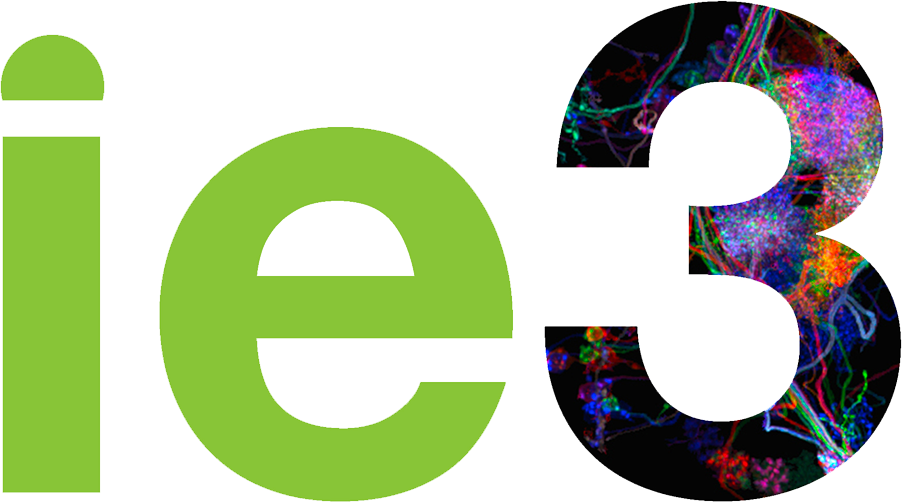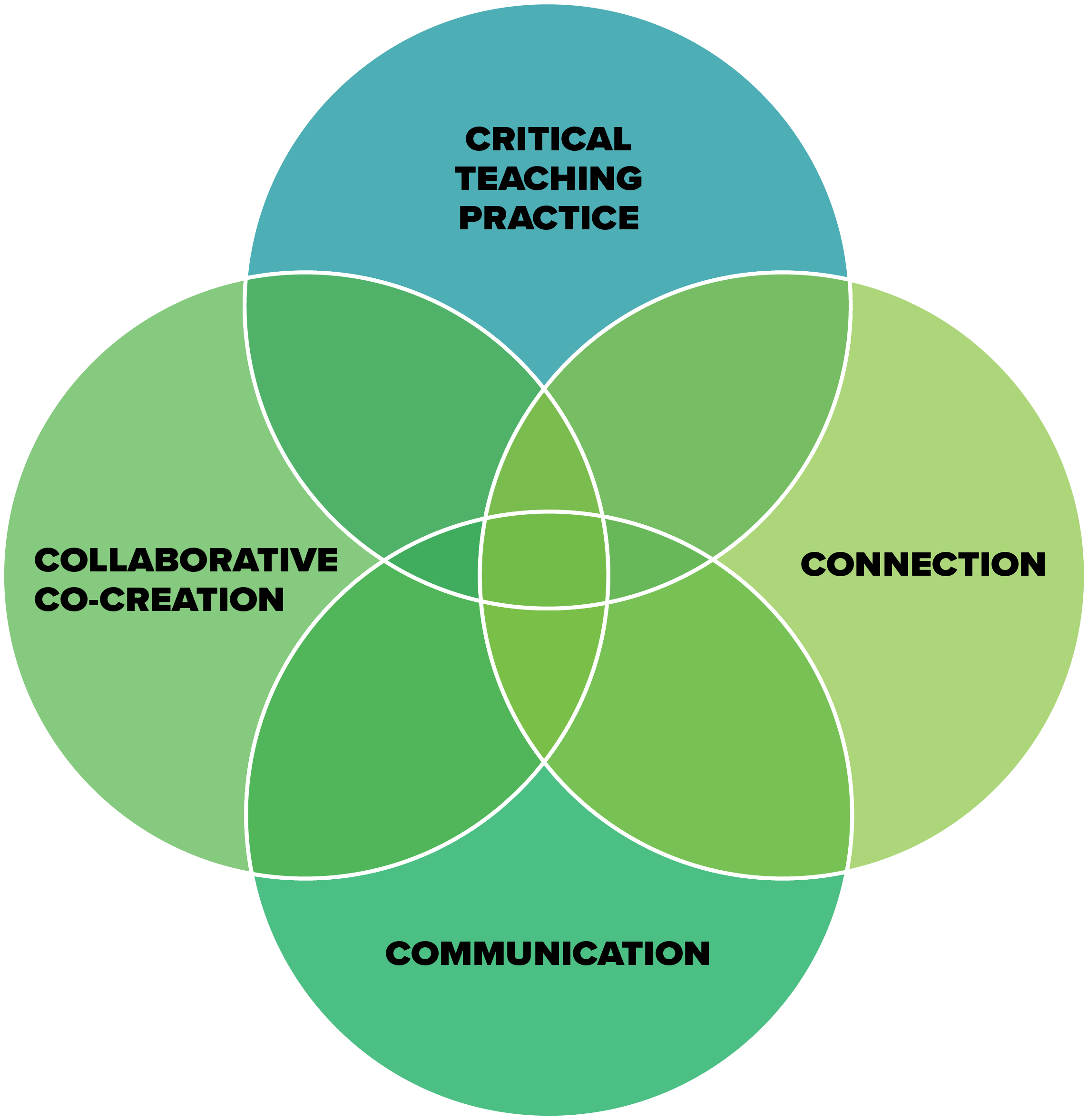About

What would it take to foster, promote, and evaluate inclusive teaching in a way that will positively shape faculty practices, motivation and career advancement, so that all students succeed and feel a sense of belonging, inclusion, support, and purpose in STEM?

The goal of the Inclusive Excellence 3 (ie3) initiative encourages colleges and universities to increase their capacity for inclusion and effect genuine and lasting culture change on campuses so that students, particularly those belonging to historically excluded groups, feel that they belong and will thrive in the sciences.
Centered around the framing question above, UConn and 14 other colleges and universities around the country form Learning Community Cluster 5 (LCC5), to take a deep dive into cultivating faculty behaviors and mindsets that support critical, reflective and equitable teaching practice, and transformation of learning environments to be anti-oppressive.
We embrace that our partner schools from across the country — in our LCC5 as well as the national network of 104 schools — differ in perspectives, faculty, students and strengths. We do not assume that institutions can only learn those that are similar in size or structure. The strength that lies within these differences helps us create inclusive spaces for each person’s and each institutional team’s wisdom to surface, be heard and valued. We support one another in uncertainty and encourage one another to dig deeper by being critical friends to one another.
LCC5 Projects at a glance
 UCONN INITIATIVES
UCONN INITIATIVES
Emerging Processes: Common language, communication and frameworks of organizational change
Underlying hypothesis: If concepts such as " inclusive practices" are clearly defined with broad input and support by the community, it is then possible to work and communicate within and across institutions.
Articulating concepts like inclusive teaching allows us to recognize observable behaviors that institutionalize educational justice. UConn is specifically interested in how operationalizing frameworks work and gather field data related to these questions: 1.) What do faculty and students currently consider to be characteristics of inclusive and-per extension-excellence in teaching? and 2.) Are views of the two groups aligned, and what evidence is needed, but reasonable to collect for judgements about inclusive teaching excellence? Learn more about the project
Instructor Driven Change: Professional development in equity minded teaching
Underlying hypothesis: Cohort-based professional development coupled with reflective practices can promote equity mindsets to question the status quo and improve enacted curricula on individual and unit levels.
Our approach of cohort-based professional development aligns with social network theory of change. Instructor driven change through leadership communities of equity-minded and scholarly teaching and learning, aims to accelerate relationship building, dissemination of information, and facilitation of learning under the umbrella of our belief that teaching cannot be effective without being inclusive and equitable. Learn more about the project
ADDITIONAL INITIATIVES AROUND THE COUNTRY
Connection: Sense of belonging
Underlying hypothesis: An increase in faculty understanding of students' sense of belonging in STEM will be associated with increased motivation to adopt inclusive practices that promote student belonging. In addition, faculty who perceive inclusive practices as valued by their institution and contributing to professional advancement will be more likely to engage.
Retention and learning in college, particularly among historically marginalized students in STEM, is associated with a sense of belonging. Enabling belongingness can contribute to a more enriching educational experience and in turn, greater representation within STEM, in higher education and in the workforce. Using an evidence-based approach, this project draws on the experiences of the member institutions and the scientific literature to inform an understanding of the construct of belonging, how belonging impacts student success, and how that sense of belonging is impacted by specific pedagogical practices.
Collection: Data that supports and evaluates change
Underlying hypothesis: Identification of both existing disparities and successful institutional practices will promote equitable outcomes for students from underrepresented groups.
This interinstitutional collaborative effort provides datasets of sufficient size and predictive power to drive positive DEI outcomes. The diversity of LCC5 institutions allows us to learn from one another and expand our ideas of what is possible in enhancing DEI. Data within institutions over time are needed to reveal the most fruitful areas for change, explain existing trends, and track successes and failures. Broad analysis among institutions will reveal factors related to equity in education (challenges and successes) which do not emerge in single institution studies. A model that looks at factors that drive success will speed the transition to equity and inclusion.
Influence: Examining how data interacts with curricula
Underlying hypothesis: Inclusive teaching strategies can increase equity in academic outcomes for under-served students, especially in pivot classes. Extant data can be used to identify and improve curricular networks to optimize success for under-served students, making it possible to positively shape faculty practices that promote inclusive teaching, increase student success, and enhance student sense of belonging, inclusion, support, and purpose in STEM.
This project seeks to use institutional data to identify curricular structures that promote (or hinder) student success, provide evidence to encourage modification of those structures to become student-ready, and identify faculty members who are teaching effectively to serve as champions for inclusive teaching. By auditing and changing policies, practices, and services to meet students’ needs and eliminate barriers, data-driven optimization could dramatically improve curricular systems, advising processes, student sense of support and purpose in STEM, and faculty morale and willingness to enhance their teaching.
Incentive: Pathways to rethink faculty rewards and evaluation structures
Underlying hypothesis: If we appropriately incentivize effective and inclusive teaching, then more faculty will work towards implementing these teaching practices.
To this, we suggest that: (1) There are multiple ways to incentivize effective and inclusive teaching; (2) Some approaches are likely more effective than others, and this could be dependent on institutional context or level of the professoriate; (3) We do not have to start from scratch, but can learn from previously tried; (4) Working together will allow us to support change better than working independently.